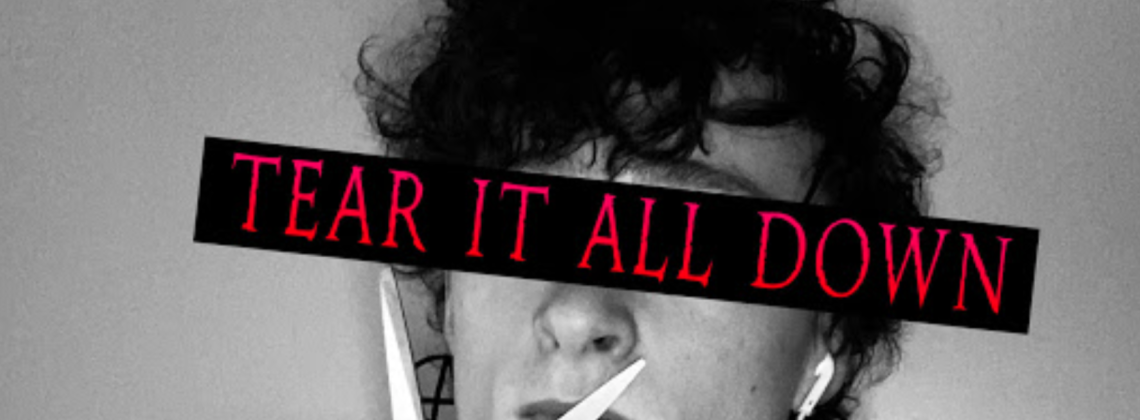

The institutions evangelicals oppose have Christian origins
When the second Trump administration takes office, it is likely to engage in the most systematic dismantling of established institutions in nearly two hundred years.
Trump’s strong criticisms of the North Atlantic Treaty Organization (NATO), his comments about annexing Greenland or making Canada the “fifty-first state,” and his nomination of several people with no conventional political experience to top Cabinet positions all signal a rejection of the established order that presidents of both parties have largely accepted for decades.
Since evangelical Christians gave Donald Trump strong support at the ballot box last November, many of them may welcome the new administration’s anti-establishment ethos. After all, the existing “establishment” has not always been supportive of theologically conservative Christians’ values. Roe v. Wade was a cornerstone of the nation’s legal order for nearly half a century, and it was dismantled only with the help of Trump’s judicial nominees.
But while an anti-establishment ethos in the executive branch may seem like a welcome change to many Christians, it is less compatible with Christian values than many suppose. To understand why, it’s useful to think about the particular theological suppositions that led to the creation of the institutions that a second Trump administration is most likely to undermine.
The constitutional framers’ original vision of a separation of powers—along with a concomitant fear that the power of the chief executive in particular needed to be kept in check—reflected a vision of human nature that recognized the universality of human corruption.
James Madison, the leading advocate of the principle of separation of powers at the constitutional convention, wrote in Federalist 51 that “it may be a reflection on human nature, that such devices [that is, checks and balances in government] should be necessary to control the abuses of government.”
“But what is government itself, but the greatest of all reflections on human nature?” he asked rhetorically. “If men were angels, no government would be necessary. If angels were to govern men, neither external nor internal controls on government would be necessary. In framing a government which is to be administered by men over men, the great difficulty lies in this: you must first enable the government to control the governed; and in the next place oblige it to control itself.”
Madison’s own religious beliefs are somewhat difficult to determine precisely. He might not have been comfortable calling his discussion of “human nature” in Federalist 51 “original sin,” but in saying that men were not angels, he was echoing an Augustinian or Pauline principle.
A century and a half later, C. S. Lewis noted in a private letter that many of his peers supported democracy because they held an optimistic view of human nature and believed that people had both the capability and the right to govern themselves. Lewis, though, said that his own reasons for favoring democracy were grounded in the opposite view of human nature: “I am a democrat because I believe in the Fall and therefore think men are too wicked to be trusted with more than the minimum power over other men.”
Despite the Christian principles that ground the constitutional provision for the separation of powers, Christians from every major political party have found it easy to turn a blind eye to the expansion of executive power when the executive in question supports their agenda.
When President John Adams jailed newspaper editors who criticized his administration, the Federalist ministers in New England who supported his administration didn’t seem disturbed by this expansion of executive power—even though many of them were Calvinist Congregationalists who had a robust doctrine of original sin, which recognizes the propensity of every person to abuse their power.
When Franklin Roosevelt greatly expanded the authority of the executive branch and threatened to “pack” the Supreme Court when it ruled some of his programs unconstitutional, many of the liberal Christians who supported his New Deal agenda didn’t seem particularly bothered.
And when Richard Nixon ordered his attorney general to fire the special prosecutor who was investigating his administration, most of Nixon’s evangelical supporters said nothing at the time.
If the founders’ vision of separation of powers was based on a Christian-inspired understanding of human corruptibility, the international institutions that the United States created at the end of World War II—including the North Atlantic Treaty Organization (NATO), a system of free trade, and a promise of US aid to other countries—were also grounded in an understanding of Christian principles.
“We believe that all men have a right to freedom of thought and expression,” President Harry Truman stated in his inaugural address in 1949. “We believe that all men are created equal because they are created in the image of God.”
Because of this belief, Truman said, “the American people desire, and are determined to work for, a world in which all nations and all peoples are free to govern themselves as they see fit, and to achieve a decent and satisfying life. Above all else, our people desire, and are determined to work for, peace on earth—a just and lasting peace—based on genuine agreement freely arrived at by equals.”
While the United States was never consistent in upholding these principles, Truman’s words nevertheless signaled the ideal. The purpose for NATO and the nation’s larger international fight against communism was never simply to protect American interests. Instead, it was based on a belief in divinely given human equality (and concern for one’s neighbor) that was grounded in Judeo-Christian principles.
One might well argue that Truman was wrong in his application of these principles, and that NATO wasn’t really necessary. Or one might argue that it has outlived its usefulness. But it would be foolish for Christians to support the dismantling or undermining of the institutions that Truman and his colleagues created in the late 1940s without understanding the Christian principles on which they were based.
Truman’s foreign policy choices were based on a Christian-inspired view of human equality and an interconnected world—a belief that Americans in a richly blessed land had a divine mandate to be concerned about the well-being of those in Europe, Asia, and elsewhere.
One might imagine that evangelical Christians who have an understanding of fallen human nature would be strongly suspicious of executive overreach or that those who have a clear theology of the imago dei would be sympathetic to the international order that Truman helped to create. But for the most part, this is not the case.
The reason, at least in part, is that evangelicals have historically been more suspicious of governmental institutions than other groups of Christians were. The institutions of the Cold War international order were largely the creation of liberal Protestants—with some help as well from Catholics, Jews, and non-religious liberals. So were the institutions of the New Deal state of the 1930s. And so, in fact, were most of the other institutions whose future direction is now in question in a second Trump administration.
Conservative evangelicals did not create the Food and Drug Administration (FDA) or the Department of Education. They did not create NATO. Nevertheless, plenty of Christians were involved in the creation of these entities. Progressives who believed in the Social Gospel contributed to the FDA, Jimmy Carter (a lifelong Baptist with a strong faith but liberal cultural beliefs) signed off on the Department of Education, and the construction of Cold War alliances was partly the work of the devout mainline Presbyterian John Foster Dulles.
All of these Christians believed strongly in the importance of institutions, but among many conservative evangelicals, suspicion about institutions abounded throughout the twentieth century. Unfortunately, what is likely to replace the liberal Protestant-inspired institutions that are being dismantled now is not something that is more evangelical or biblical. Instead, it’s likely to be lacking in any Christian foundation and will almost certainly not reflect an Augustinian view of human nature or a theology of creation.
And if that’s the case, we should not cheer on an anti-institutional agenda. Resisting or reforming institutions that are contributing to sinful principles is always a good thing. But overturning decades-old institutional norms that were based on Christian thinking is unwise—and it certainly should not be considered a Christian project.
Daniel K. Williams is a historian working at Ashland University and the author of Defenders of the Unborn: The Pro-Life Movement before Roe v. Wade and The Politics of the Cross: A Christian Alternative to Partisanship. He is a Contributing Editor at Current.
Image credit: Calypso, “Tear it All Down,” Creature, 2021, YouTube
An excellent commentary and analysis which I find myself affirming- Dr. Dan & Dr Nadya Williams have become two of my favorite historians. I am able to travel from the ancient Greco-Roman world to 21st century America by following these two faithful Christian guides.
John G.